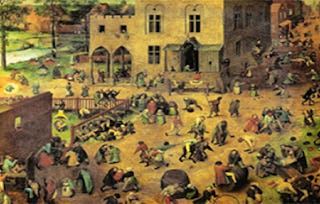Popularized by movies such as "A Beautiful Mind," game theory is the mathematical modeling of strategic interaction among rational (and irrational) agents. Beyond what we call `games' in common language, such as chess, poker, soccer, etc., it includes the modeling of conflict among nations, political campaigns, competition among firms, and trading behavior in markets such as the NYSE. How could you begin to model keyword auctions, and peer to peer file-sharing networks, without accounting for the incentives of the people using them? The course will provide the basics: representing games and strategies, the extensive form (which computer scientists call game trees), Bayesian games (modeling things like auctions), repeated and stochastic games, and more. We'll include a variety of examples including classic games and a few applications.
Ends soon: Gain next-level skills with Coursera Plus for $199 (regularly $399). Save now.


(4,900 reviews)
Skills you'll gain
Details to know

Add to your LinkedIn profile
15 assignments
See how employees at top companies are mastering in-demand skills

There are 8 modules in this course
Introduction, overview, uses of game theory, some applications and examples, and formal definitions of: the normal form, payoffs, strategies, pure strategy Nash equilibrium, dominant strategies
What's included
11 videos2 readings2 assignments3 discussion prompts
pure and mixed strategy Nash equilibria
What's included
7 videos2 assignments
Iterative removal of strictly dominated strategies, minimax strategies and the minimax theorem for zero-sum game, correlated equilibria
What's included
6 videos2 assignments
Perfect information games: trees, players assigned to nodes, payoffs, backward Induction, subgame perfect equilibrium, introduction to imperfect-information games, mixed versus behavioral strategies.
What's included
10 videos2 assignments2 discussion prompts
Repeated prisoners dilemma, finite and infinite repeated games, limited-average versus future-discounted reward, folk theorems, stochastic games and learning.
What's included
7 videos2 assignments2 discussion prompts
General definitions, ex ante/interim Bayesian Nash equilibrium.
What's included
6 videos2 assignments
Transferable utility cooperative games, Shapley value, Core, applications.
What's included
5 videos2 assignments
The description goes here
What's included
1 assignment
Instructors



Explore more from Economics
 Status: Preview
Status: PreviewStanford University
 Status: Preview
Status: PreviewThe University of Tokyo
 Status: Preview
Status: PreviewIIMA - IIM Ahmedabad
 Status: Free Trial
Status: Free Trial
Why people choose Coursera for their career




Learner reviews
4,900 reviews
- 5 stars
71.97%
- 4 stars
21.89%
- 3 stars
3.77%
- 2 stars
1.16%
- 1 star
1.18%
Showing 3 of 4900
Reviewed on Jul 3, 2020
The first weeks are very well structured and can be understood, but later on it gets more confused. I don't feel like I understand the cooperative games (weeks 6-8) after this course.
Reviewed on May 8, 2017
The course is generally good. The exercises however are not very well explained. Furthermore, it would be nice to have a pdf from the course in order to be able to study independently.
Reviewed on Dec 10, 2021
Remarkable course; every concept is deeply explained and I really appreciate the engagement activities & rigorous learning. I can't wait to see what I do with this newfound knowledge!

Open new doors with Coursera Plus
Unlimited access to 10,000+ world-class courses, hands-on projects, and job-ready certificate programs - all included in your subscription
Advance your career with an online degree
Earn a degree from world-class universities - 100% online
Join over 3,400 global companies that choose Coursera for Business
Upskill your employees to excel in the digital economy
Frequently asked questions
To access the course materials, assignments and to earn a Certificate, you will need to purchase the Certificate experience when you enroll in a course. You can try a Free Trial instead, or apply for Financial Aid. The course may offer 'Full Course, No Certificate' instead. This option lets you see all course materials, submit required assessments, and get a final grade. This also means that you will not be able to purchase a Certificate experience.
When you purchase a Certificate you get access to all course materials, including graded assignments. Upon completing the course, your electronic Certificate will be added to your Accomplishments page - from there, you can print your Certificate or add it to your LinkedIn profile.
Yes. In select learning programs, you can apply for financial aid or a scholarship if you can’t afford the enrollment fee. If fin aid or scholarship is available for your learning program selection, you’ll find a link to apply on the description page.
More questions
Financial aid available,


